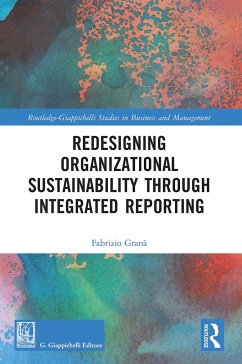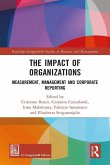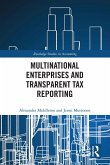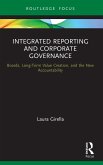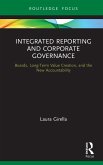This book explores the role of accounting and reporting practices, such as corporate and integrated reports, as organizations attempt to represent sustainability.
By relying upon the case of a large international oil and gas company and its recent development of integrated reporting, this book argues that the ambiguity of sustainability as a concept, and the impossibility to fully capture it through accounting and reporting practices, does not mean that any attempt to represent it inevitably leads to distortion or obfuscates 'reality'. Rather, the way in which this concept is presented through accounting and reporting practices can have a constructive effect on the organization through the aspirations that these representations entail.
The book demonstrates that accounting and reporting practices, such as integrated reporting, are not expected to offer complete representations of organizations' sustainability. Rather, these practices offer a number of representations (e.g. graphs, diagrams, tables, grid) that affect the way in which organizations understand and report on sustainability, changing its meaning over time. Finally, this study demonstrates that undefined concepts, such as 'sustainability', and practices, such as 'integrated reporting', mutually construct each other. The attempt to represent sustainability within the organization and the debates that this process generates, make accounting and reporting practices unfold themselves, and evolve.
The book will be of interest to scholars in the field of accounting, management and sustainability, as well as practitioners from a wide array of additional fields, such as planning and control, organizations' strategy, business ethics, corporate social responsibility and corporate reporting.
By relying upon the case of a large international oil and gas company and its recent development of integrated reporting, this book argues that the ambiguity of sustainability as a concept, and the impossibility to fully capture it through accounting and reporting practices, does not mean that any attempt to represent it inevitably leads to distortion or obfuscates 'reality'. Rather, the way in which this concept is presented through accounting and reporting practices can have a constructive effect on the organization through the aspirations that these representations entail.
The book demonstrates that accounting and reporting practices, such as integrated reporting, are not expected to offer complete representations of organizations' sustainability. Rather, these practices offer a number of representations (e.g. graphs, diagrams, tables, grid) that affect the way in which organizations understand and report on sustainability, changing its meaning over time. Finally, this study demonstrates that undefined concepts, such as 'sustainability', and practices, such as 'integrated reporting', mutually construct each other. The attempt to represent sustainability within the organization and the debates that this process generates, make accounting and reporting practices unfold themselves, and evolve.
The book will be of interest to scholars in the field of accounting, management and sustainability, as well as practitioners from a wide array of additional fields, such as planning and control, organizations' strategy, business ethics, corporate social responsibility and corporate reporting.

